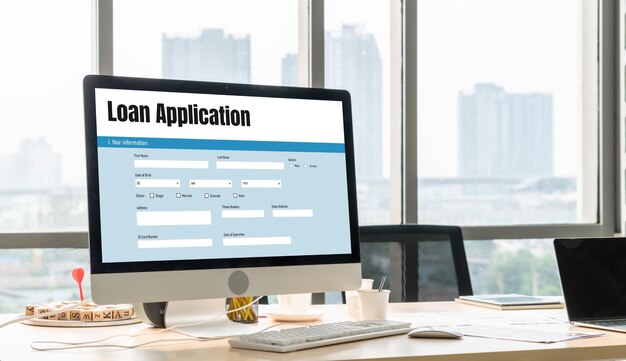In Botswana, unsecured business loans offer a valuable financing option for small and medium-sized enterprises (SMEs) looking to fund their operations without providing collateral. Unlike secured loans, unsecured loans do not require assets such as property, inventory, or equipment to back the loan. However, qualifying for an unsecured loan can be competitive, as lenders assess various factors to determine whether your business is eligible. In this article, we’ll explore who qualifies for unsecured business loans in Botswana and the criteria involved.
What is an Unsecured Business Loan?
An unsecured business loan is a form of financing that provides funds to a business without requiring the borrower to pledge collateral. The lender relies on the business’s creditworthiness and financial history rather than assets to evaluate the loan’s risk. Since unsecured loans carry a higher risk for lenders, they typically come with slightly higher interest rates compared to secured loans.
Who Qualifies for Unsecured Business Loans in Botswana?
Several factors determine whether your business qualifies for an unsecured loan in Botswana. Understanding these eligibility criteria can help you prepare your business to meet the requirements and improve your chances of getting approved.
1. Established Business History
To qualify for an unsecured business loan in Botswana, your business generally needs to have a stable and established history. Lenders prefer businesses that have been operating for at least 1 to 2 years. A longer track record demonstrates to lenders that your business is viable, with a consistent history of revenue and operations.
2. Strong Business Credit Score
Just like with any other type of loan, a good credit score is essential when applying for unsecured business loans. Lenders in Botswana assess the financial health of your business through its credit score. A strong business credit score indicates that your business has a history of managing debt responsibly and paying bills on time. If your business has a poor credit score, it may be challenging to qualify for unsecured loans, or you may face higher interest rates.
3. Positive Cash Flow
Unsecured loan providers want to ensure that your business has the ability to repay the loan. One of the main ways they assess repayment capacity is by looking at your cash flow. Businesses in Botswana with positive and consistent cash flow are more likely to qualify for unsecured loans. Lenders will typically review your profit-and-loss statements, bank statements, and financial records to ensure that you have the financial capacity to service the debt.
4. Business Plan and Growth Potential
Lenders may also assess the strength of your business plan and the growth potential of your company. Businesses with a clear vision, sound financial projections, and a strategy for growth are seen as less risky by lenders. If your business is in an expanding industry with high growth potential, you may have an easier time qualifying for unsecured business loans.
5. Personal Creditworthiness of Business Owners
In some cases, lenders in Botswana may assess the personal creditworthiness of the business owner or the guarantor. If your personal credit score is strong and you have a history of managing your finances responsibly, this may increase your chances of qualifying for an unsecured loan. Business owners who have a strong personal credit score demonstrate reliability and financial responsibility, which can instill confidence in lenders.
6. Debt-to-Income Ratio
Your business’s debt-to-income (DTI) ratio is another key factor that lenders consider when evaluating unsecured loan applications. The DTI ratio compares your business’s debt payments to its income. A lower DTI ratio indicates that your business has the ability to manage debt effectively and is more likely to repay an unsecured loan. Businesses with high DTI ratios may struggle to secure unsecured financing, as lenders may see them as higher-risk borrowers.
7. Industry and Business Type
The type of business you run and the industry you’re in can also impact your eligibility for an unsecured business loan in Botswana. Certain industries, such as tech or manufacturing, may be viewed as less risky and more likely to qualify for unsecured financing. In contrast, businesses in high-risk industries may find it more challenging to secure unsecured loans.
How to Improve Your Chances of Qualifying
If you’re a business owner in Botswana and want to improve your chances of qualifying for an unsecured loan, here are a few steps to take:
- Maintain Good Credit: Ensure that both your personal and business credit scores are strong by paying bills on time and managing existing debt responsibly.
- Track Cash Flow: Keep a close eye on your cash flow, ensuring that your business has enough liquidity to service the loan.
- Prepare Financial Statements: Make sure that your business’s financial records are up to date, including profit-and-loss statements, balance sheets, and bank statements.
- Build a Solid Business Plan: Outline clear business goals, financial projections, and a growth strategy that will demonstrate the long-term viability of your business.
- Limit Existing Debt: Reduce existing debt where possible to maintain a healthy debt-to-income ratio.
Unsecured business loans provide a valuable financing option for Botswana SMEs that need capital without risking collateral. To qualify for an unsecured loan, your business will need to meet several criteria, including having an established history, a good credit score, positive cash flow, and a solid business plan. By understanding the qualifications and taking steps to improve your financial health, you can increase your chances of securing an unsecured loan and unlocking the capital needed to grow your business.






